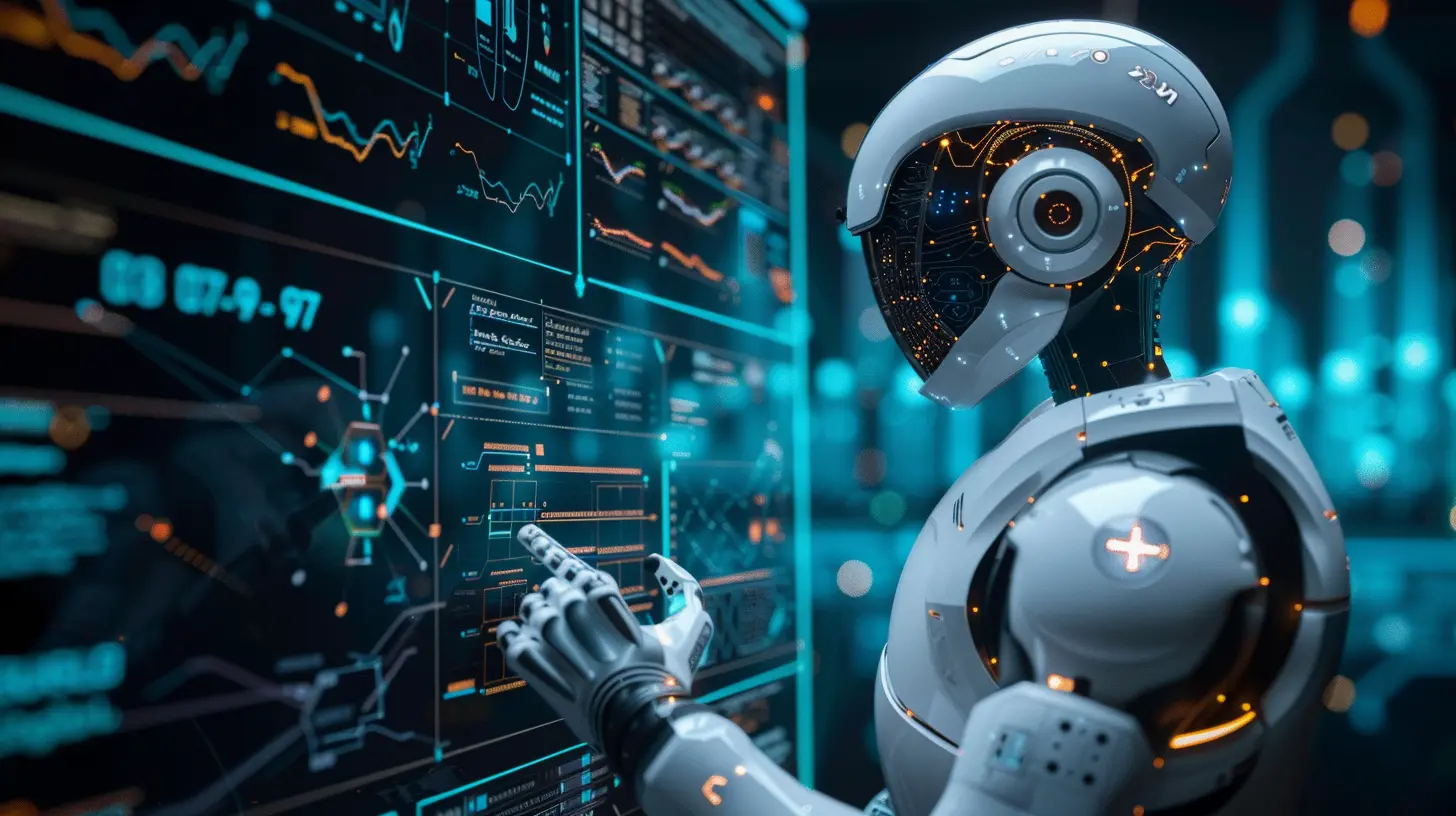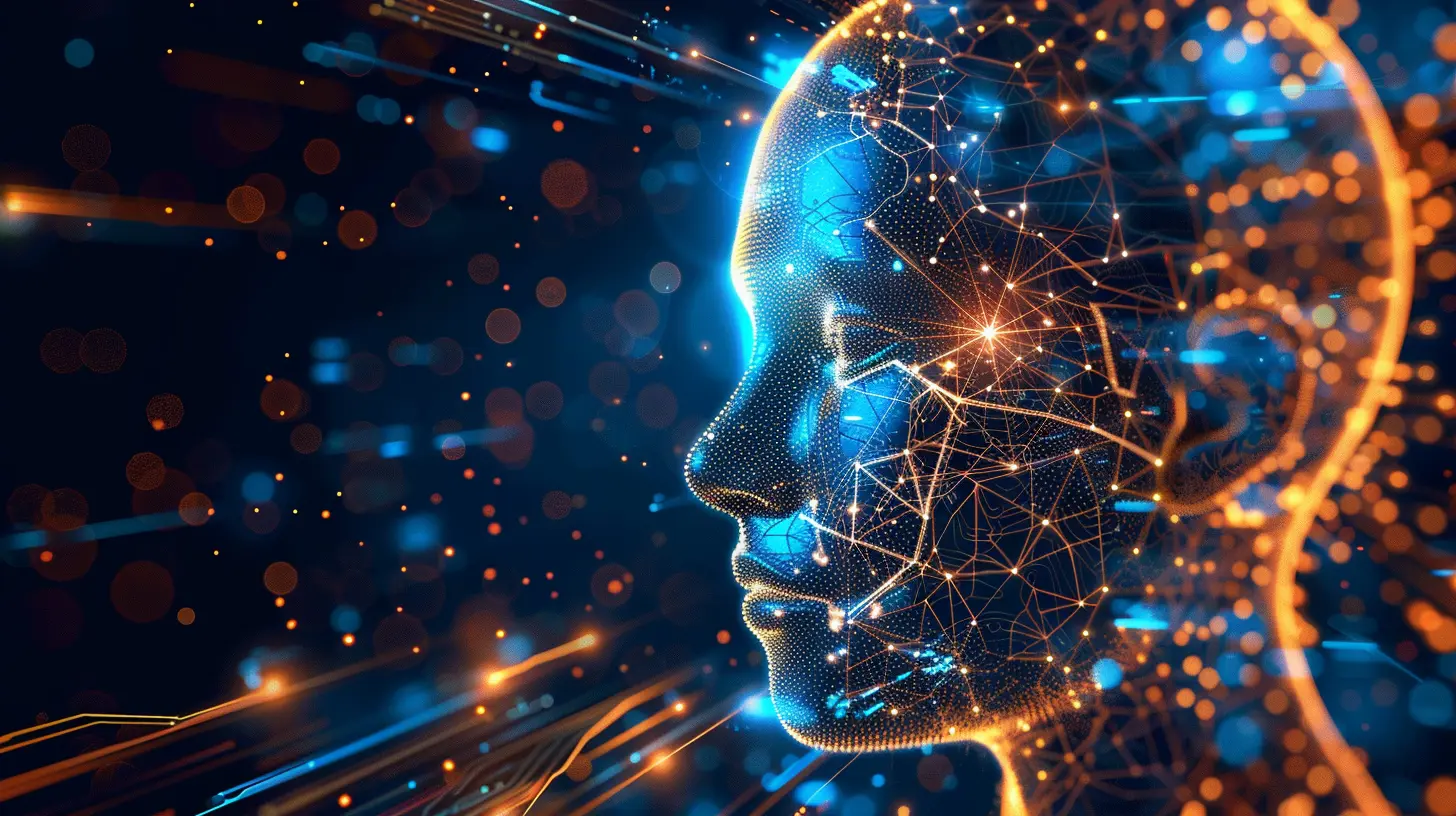4 April 2025
Education is changing rapidly, and one of the biggest game-changers is Artificial Intelligence (AI). From personalized learning experiences to automated grading, AI is reshaping how students learn and how educators teach. But how exactly does AI fit into the e-learning landscape? Let’s dive into the role of AI in e-learning platforms and see how it’s making education smarter, more efficient, and—dare I say—more exciting!
🎓 How AI is Revolutionizing E-Learning
E-learning has come a long way from simple video tutorials and PDFs. Now, AI is injecting intelligence into online education, making it more interactive and tailored to individual learners. Whether you're a student struggling with math or a professional upskilling for a promotion, AI ensures that learning is not just easier, but also more engaging.Here are some of the ways AI is making a difference:
- Personalized learning experiences
- Intelligent tutoring
- Automated grading and feedback
- Smart content creation
- Enhanced accessibility
Let’s break each of these down and see how AI is transforming education behind the scenes. 
🎯 Personalized Learning: A Tailor-Made Experience
One-size-fits-all education is a thing of the past. AI analyzes students' learning habits and performance to create a customized learning path. How does it do this?- AI tracks how fast you learn and adjusts the difficulty level.
- It identifies weak areas and recommends targeted content.
- Machine learning algorithms predict the best way for you to learn based on past behavior.
For instance, if you're using an e-learning platform to improve your English skills, AI can track your grammar mistakes and provide exercises focused specifically on them. Instead of wasting time on concepts you already know, you get lessons that truly help you improve.
This kind of adaptive learning makes education feel more like a personal tutor than a generic online course. 
🤖 AI-Powered Tutors: Learning Without Limits
Imagine needing help with a complex math problem at midnight. No worries—AI tutors are available 24/7, ready to guide you step by step.AI-driven chatbots and virtual tutors are designed to mimic human tutors by:
- Answering questions instantly
- Providing real-time explanations
- Offering practice problems based on your progress
These intelligent tutors don’t just give answers; they help you understand why an answer is correct, ensuring deeper learning.
Some famous AI tutors like Socratic by Google and IBM Watson Tutor are already making waves in education. They use AI to simplify complex subjects, making learning more accessible to everyone. 
📝 Automated Grading and Feedback: A Time-Saver for Educators
Let's be honest—grading assignments is time-consuming. AI is stepping in to handle the tedious grading process, allowing educators to focus more on teaching rather than paperwork.AI-powered grading systems can:
- Assess multiple-choice quizzes instantly
- Evaluate essays using Natural Language Processing (NLP)
- Provide detailed feedback on student responses
For example, tools like Turnitin and Grammarly don’t just check for plagiarism or grammar errors; they also suggest improvements, ensuring that students learn from their mistakes.
This means faster feedback for students and less stress for teachers—a win-win situation!
📚 Smart Content Creation: AI as a Learning Designer
Ever wished your textbooks were more interactive? AI is making that happen.AI-driven tools can generate interactive study materials, including:
- Video summaries of lengthy topics
- AI-generated quizzes based on course content
- Smart flashcards for revision
For instance, platforms like Quizlet and Khan Academy use AI to create study aids tailored to each student’s needs. These aren’t just static resources—they adapt and change based on a student’s progress, ensuring better retention.
With AI, learning is no longer about just reading pages of text—it’s about engaging, interactive, and effective learning experiences.
🚀 Enhanced Accessibility: Education for Everyone
AI is also breaking down barriers in education, making learning more accessible for all students, including those with disabilities.Here’s how AI is enhancing accessibility in e-learning:
- Speech-to-text & text-to-speech tools help students with visual or hearing impairments.
- AI-powered language translation lets students learn in their native language.
- Voice assistants like Siri or Alexa assist students with hands-free learning.
For students with special needs, AI-driven tools provide personalized learning experiences, ensuring they receive the support they need to succeed.
Education should be for everyone, and AI is playing a massive role in making that vision a reality.
🤔 The Challenges of AI in E-Learning
Of course, AI isn’t perfect. While it’s bringing revolutionary changes, there are still challenges to address:- High setup costs: Implementing AI in e-learning platforms requires significant investment.
- Data privacy concerns: AI collects vast amounts of student data, raising security issues.
- Limited emotional intelligence: AI lacks human empathy, which is essential for some aspects of teaching.
Despite these challenges, ongoing research and improvements in AI technology continue to fine-tune and enhance its role in education.
🌟 The Future of AI in E-Learning
So, where is this all heading? AI is expected to become an inseparable part of education, making learning smarter and more accessible. Some future possibilities include:- More advanced AI tutors that offer human-like interactions.
- Predictive analytics to anticipate student struggles before they happen.
- AI-driven career guidance based on students’ strengths and interests.
The goal isn’t to replace teachers—it’s to empower them with AI, making education more efficient and engaging.
🎤 Final Thoughts
Artificial intelligence is no longer just a futuristic concept—it’s actively transforming e-learning. From personalized lessons to instant feedback, AI is making education more adaptable, interactive, and inclusive.While challenges exist, the benefits far outweigh them. With the continuous advancement of AI, the future of e-learning looks incredibly bright. Whether you’re a student or an educator, AI is here to enhance your learning experience and make education smarter than ever.
What’s your take on AI in education? Let’s discuss in the comments!




Natasha Weber
Artificial Intelligence in e-learning redefines pedagogy, personalizing pathways for diverse learners. Yet, it prompts reflection on the balance between technology and human connection, questioning whether AI enhances understanding or merely automates education's intrinsic humanity.
April 4, 2025 at 3:25 AM